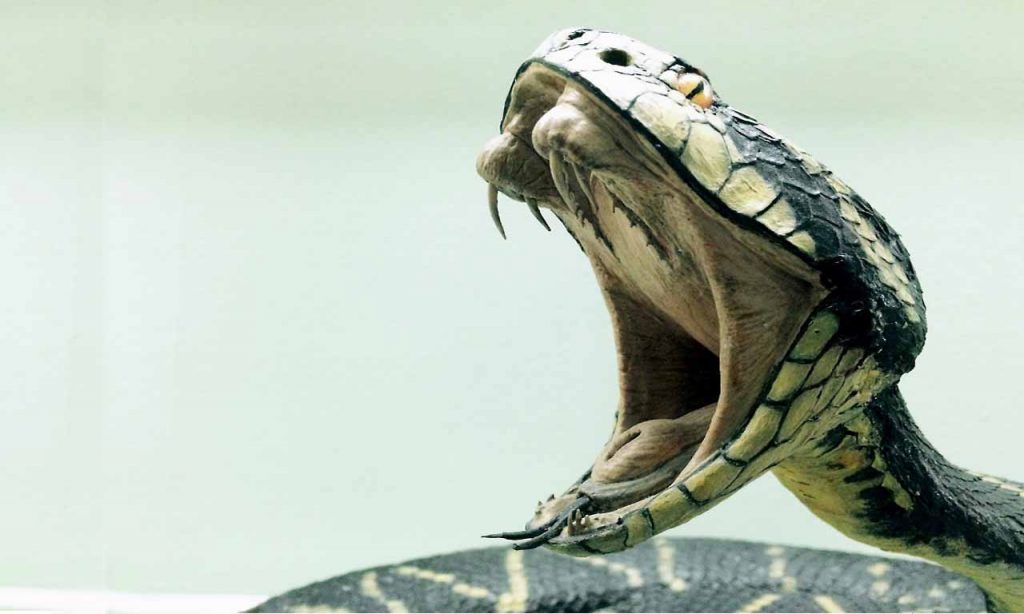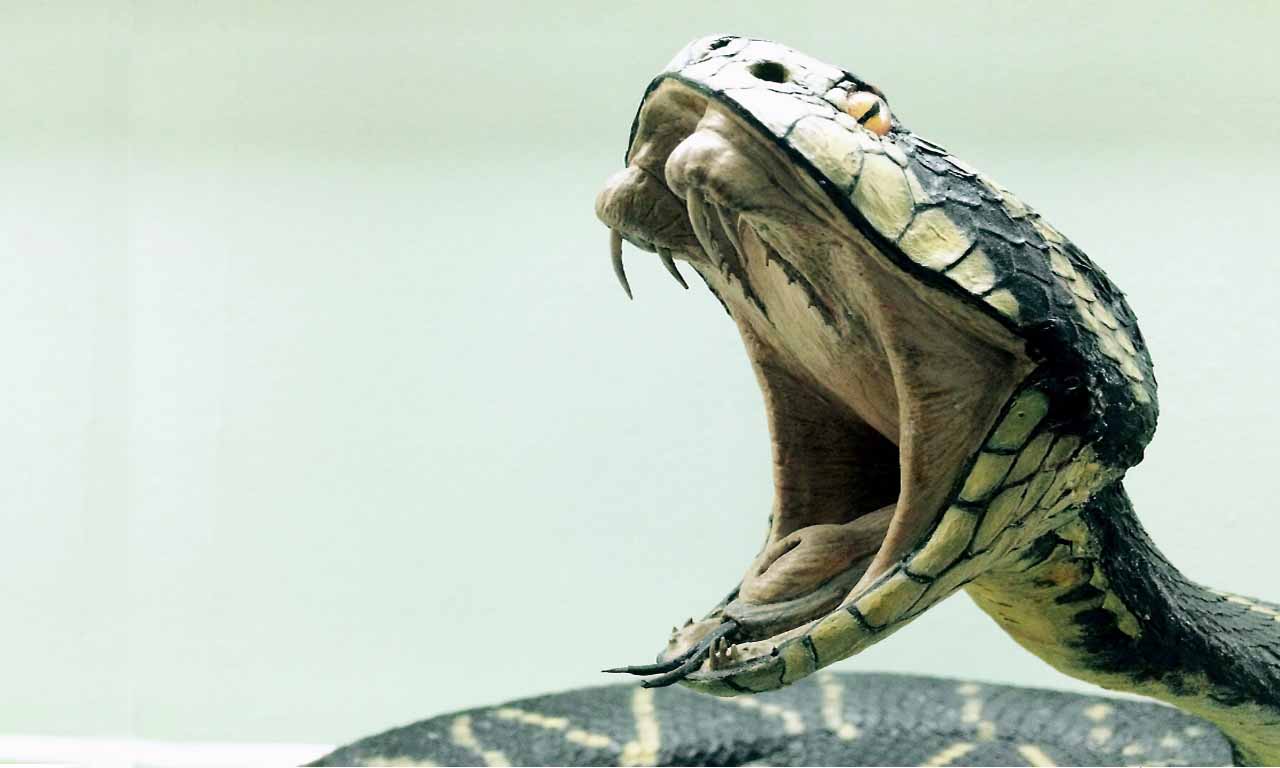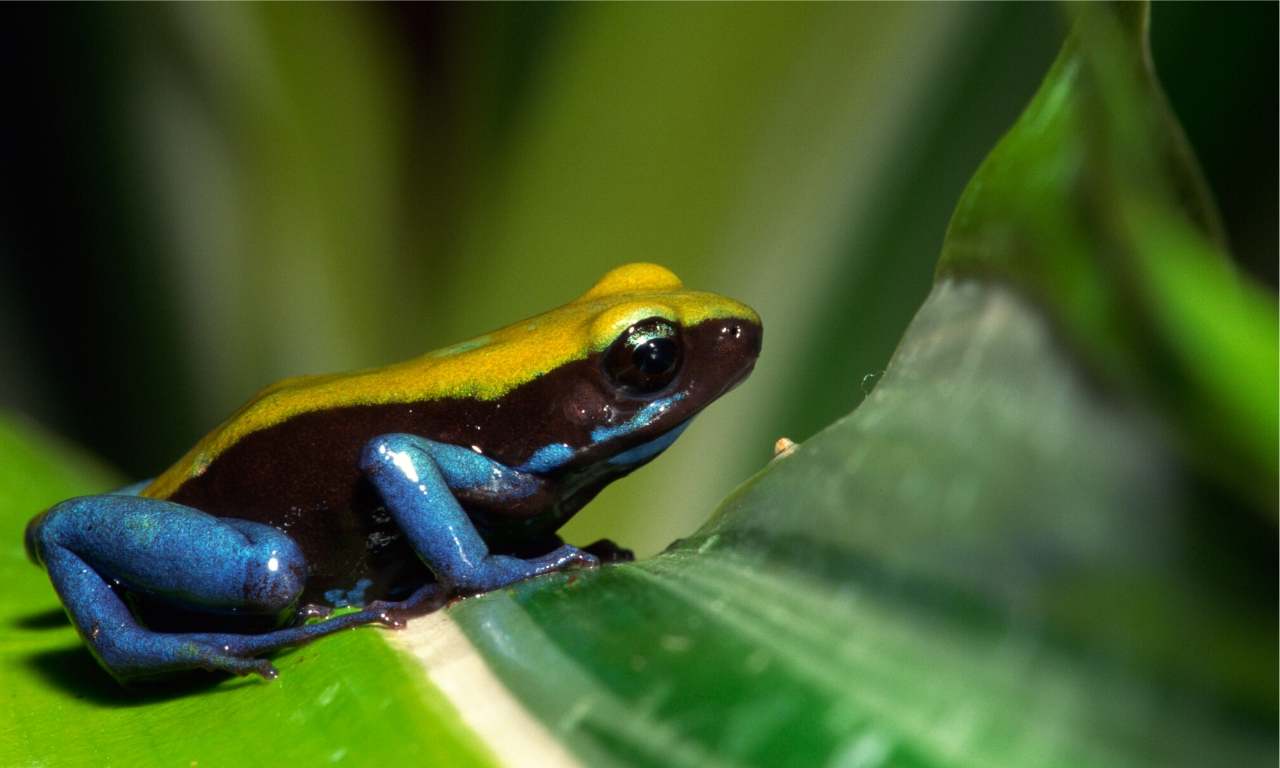
 The speciality of poisonous snakes is the ability to inject poison into their victim. But how do they carry that venom? If those venom are so toxic, aren’t they supposed to be dead? With that, the question arises
The speciality of poisonous snakes is the ability to inject poison into their victim. But how do they carry that venom? If those venom are so toxic, aren’t they supposed to be dead? With that, the question arises
Can a snake die from its own venom? It depends. Firstly, venom only works when it can get into the bloodstream. Secondly, If the amount of poison mixed into their blood is less, then the snake won’t die, but if it’s more, then they can die. Snakes have an antibody that protects them against a small dosage of their own venom.
Snakes only inject venom they are going to attack and while protecting themselves. They don’t waste unnecessary venom. Venom is the key aspect of their survival. It’s an asset, so they use it carefully.
What Is A Snake Poison?
Snake poison is made by glands that secrets saliva. The venom consists of 50-100 different proteins. Usually, a person salivary glands secrete saliva, but snakes use the mixture of various protein with saliva and other substances creating a toxic property.
The property of the toxin varies from species to species. The potency of the toxin also varies from snake to snake. Some poison works fast, and some poison takes time.
Some snakes need to inject only a droplet, and some snakes inject a lot of poison. Some of the poison affects the nerves; some poison affects the cells. There are a lot of variations.
The potency of a snake poison also varies within the same species. Which means two king cobra will have two different venom potency and will effect accordingly. The more potent the poison is, the deadly it is.
Can Snakes Die Of Poisoning?
 Although snakes won’t die by their own poison, they can die if they consume something poisonous. These anti-venom cells are only useful to low-level poisoning, but high-level poisoning will kill them.
Although snakes won’t die by their own poison, they can die if they consume something poisonous. These anti-venom cells are only useful to low-level poisoning, but high-level poisoning will kill them.
They may not die from their poison, but they can die from something more poisonous than them. There are poisonous frogs, and those can kill a snake. Snakes avoid these frogs.
Although they can be easy prey but killing them will kill the snake. Some of these frogs are even more poisonous than snakes. Due to lack of experience if a young snake accidentally ends up catching the toxic frog, then it can kill the snake.
Can Snake Poison Kill A Snake?
There is various kind of snakes in the wild, and they clash with each other for food, for supremacy, and some snakes eat other snakes.
Now the poison of other snakes can be lethal for another snake. If two snakes are fighting, then both of them can die. Some snakes like King cobra has better tolerance to neurotoxic venom. King Cobras are battling snakes with neurotoxic venom for ages. As a result, the King Cobra has generated a high degree of tolerance towards the neurotoxic venom.
A King Cobra devours small snakes. They attack other snakes on purpose to consume them. The poison of a King cobra can be lethal to other poisonous or non-poisonous snakes, but their poison doesn’t work on a King Cobra.
Snakes Don’t Die Of Poisoning After Consuming Its Prey
A snake won’t die after consuming a prey poisoned by their poison, but they can die if they end up consuming prey killed by another snake.
Snakes extraordinary senses allow them to sense whether its prey is poisoned by their poison or by other poison.
Can Non-Venomous Snake Die From Snake’s Poison

Yes, a non-poisonous snake can die if a poisonous snake bites them. Many large poisonous snakes attack small non-poisonous snake and kill them. Small non-venomous snake can not use constriction against this big venomous snake.
Usually, when a poisonous snake strikes a non-venomous snake, they do it stealthily. First, they bite a non-venomous snake. After that, it waits for the poison to take effect and then start devouring the non-venomous snake. The poisonous snake can repeatedly bites the non-venomous snake.
At this moment, the non-venomous snake struggles a lot; however, it cannot get out from the fangs of the venomous snake and eventually dies due to poison.
After the non-venomous snake is dead, the venomous snake devours it whole. Now, there are exceptions. There are large non-venomous snakes. The venomous snake does not easily target them because they are so huge that their sheer weight can kill a small poisonous snake.
Snakes like Anaconda, Reticulated python are giant non-venomous snakes, and they are at the top of the food chain. Mostly other big poisonous snakes avoid these snakes however there can be exceptions.
Sometimes snakes like King cobra can attack python. In a battle between these giants, it’s highly likely that both of them will die. The reticulated python will do what it does the best, i.e. coil around the King Cobra and the Cobra will try to bite on the pythons head.
Once the King Cobra injects the poison, the python will die within 30 minutes. However, this 30 minutes is more than enough for the reticulated python to cause cardiac arrest and kill the King Cobra.
Can Snake Die Of Food Poisoning
Snake is not a scavenger, so they won’t eat rotten food, but if they manage to eat something awful, they won’t die that easily.
Snakes have one of the most potent acids in their stomach which can digest almost anything. In essence, their stomach can digest, bones, horns of various animals etc. So, a snake won’t die that easily just from food poisoning.
Snakes Are Immune To The Poison From Same Species
It is an evolutionary development. A snake cannot die from the poison of its species. Although at a low level. Excess poisoning can kill them.
It has developed an immunity to the venom of the same species because they often get bitten during mating, while they fight over potential mating partner etc.
This is a common occurrence, and that’s why a snake doesn’t die from the poison from the same species. Other snakes poison are lethal to them because of various reasons. One of the reason is the composition of the venom.
The composition of the venom varies from species to species. Developing immune to all of them is impossible. During mating, season snakes become very aggressive, and multiple male partners approach single female snakes.
These male snakes compete against each other. The fight becomes gruesome. The losing snake has to leave the female snake and move out of that place. Often these snakes are injured and die shortly.
Snake Die Of Fungus Infection Instead Of Poisoning
Instead of dying of poison, they can die because of fungus infection. This fungus affects a few species of snakes and rattlesnake is one of them.
Rattlesnake itself is a very poisonous snake, but it is dying because of this new fungus. This fungus is not toxic by itself, but it is affecting the snakes.
Other reptiles are not getting affected, but snakes are getting harmed. More research is conducted to find out how this fungus is spreading and killing snakes.
Conclusion
The venom from the same species doesn’t kill a snake. Venom from other different species of poisonous snakes can be dangerous to another species of the snake. King Cobra attack snakes on purpose and devours them.
They attack their head injecting a deadly neurotoxic venom, thus shutting down their brain very fast. Non-venomous snakes can die to the poison of the venomous snake.
Venomous snakes are somewhat immune to their own poison, so if a little bit of their poison ends up getting in their bloodstream, they won’t die.
Snake venom only takes effect when it mixes with the blood.
Anaconda and reticulated python are at the top of the food chain. They can take down big animals, and other snakes avoid mingling with them.
Welcome to my blog. I have been doing pest control for years since my house, garden and pets were always attacked by various kinds of pests and as a result I had to know proper pest control techniques that works. In this blog I share all the tips and tricks that I know and I hope you’ll find it helpful.
